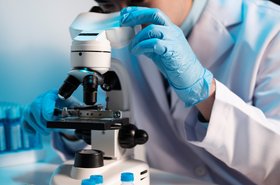The huge scientific and technological advances of the past few decades have brought immeasurable knowledge to billions, lifted entire nations out of abject poverty, and given us wonders few could have imagined.
It is easy to feel like a species that can solve anything: With sheer force of will, we can surmount any challenge and survive any disaster. But such a view blinds us to the reality of what lies ahead.
As climate change shifts from the issue of tomorrow to the crisis of today, relying on technology to save us is a dangerous folly - and one that is promoted by the same fossil fuel corporations that are profiting from our existential risk.
Science-based, but not enough
Many in this industry have laudably set 'science-based' climate targets to reduce emissions dramatically by 2030. But that's when every nation and sector needs to have at least halved emissions.
In reality, as we all sadly know, that won't happen - there will be many who ignore the science. Data centers need to beat that target as soon as possible to do their part to make up for others' failure. Plus, as it's worth reiterating, even if everyone does meet that goal, the emissions between now and 2030 will ensure catastrophic temperature changes that will destroy fragile ecosystems and displace hundreds of millions. It’s just a matter of how bad it will get.
Some would disagree. Technology will save us, they claim, pointing to carbon dioxide removal equipment. Indeed, in the latest terrifying IPCC report, scientists note some removal may now be necessary given our past inability to reduce emissions.
But the technology is wildly unprepared for the challenge ahead. Sector leader Climeworks operates the world’s largest direct-air capture plant in Iceland, capable of capturing about 4,000 tons of CO₂ each year (which then must be subtracted from the emissions of building and operating the facility, as well as flying out dozens of journalists to the site).
By 2030, the company hopes to remove more than a million tons of CO₂. That's essentially meaningless against the targeted 18 gigatons of CO₂ that will be emitted in 2030 alone (which will likely end up being higher).
What about trees? Can't we just plant our way out of the apocalypse? Even putting biodiversity issues to one side, relying on trees for carbon offsets is fraught with corruption, double counting, and ultimately means we are shifting carbon into places that may soon burn.
Last year, forest offsets bought by Microsoft in the US burned down amid a climate-change-induced wildfire. Such fires will only get more frequent and more intense.
So that just leaves a Hail Mary, yet-to-be-discovered technology that will save us, just like the Haber–Bosch process which ushered in the era of man-made fertilizer (by making ammonia cheaply), and Norman Borlaug's Green Revolution which fed billions.
Staking it all on a blind bet
But can we really stake our future on a blind bet? Such a technology would have to operate at a planetary scale in less than a decade. And yet, political will for funding such equipment does not exist. There is no reason to believe it is on the way.
Yes, we should fund such research. Yes, we should build CO₂ capture machines. Yes, we should plant trees where they make sense.
But above all, we should reduce emissions immediately.
Like our lives depend on it.





